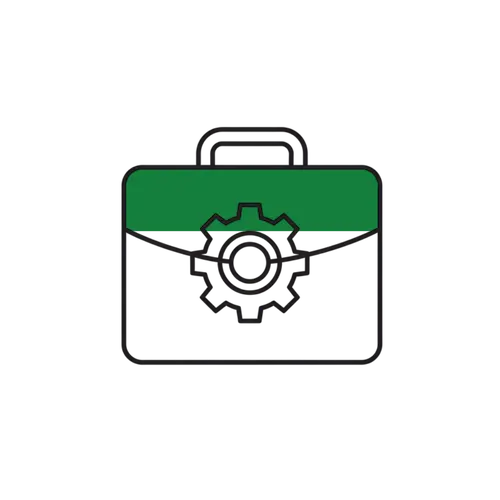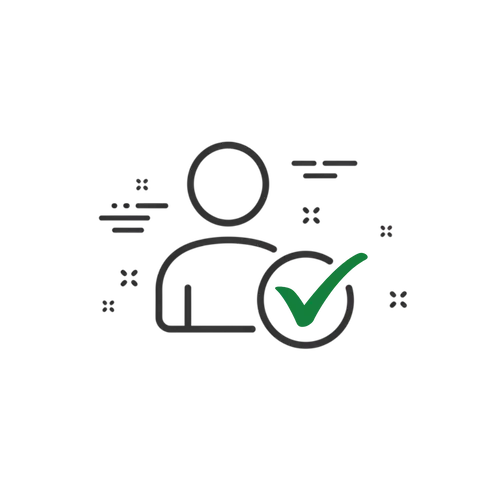As a recruiter with 10 years of experience navigating Cyprus's dynamic talent landscape, I've been watching the AI conversation unfold with both amusement and concern. Every week, another headline proclaims that "AI will replace recruiters," usually written by people who have clearly never spent a day in our shoes.
Let me set the record straight: AI is revolutionizing recruitment, but it's making us better, not obsolete.
The Problem with the "AI Replacement" Narrative
When venture capitalists and tech commentators suggest AI can replace recruiters entirely, they're revealing a fundamental misunderstanding of what we actually do. As Steve Knox, Global Head of Talent Acquisition at Dayforce, perfectly captured: "A lot of these people building these tools have never worked in HR or recruiting to really understand how this operates."
They see recruitment as simply matching keywords on resumes to job descriptions—an algorithmic puzzle to be solved. But anyone who's actually worked in recruitment, especially in Cyprus's specialized sectors of fintech, iGaming, technology, and accounting, knows that's just the starting point.
The real work begins where algorithms end.
What AI Does Well (And Why That's Great for Us)
Let's be clear: AI is transforming our industry, and that's fantastic. AI excels at the tasks that used to consume the majority of our time:
Resume screening at scale - Processing thousands of applications in minutes rather than hours
Initial candidate outreach - Sending personalized messages based on data patterns and professional backgrounds
Interview scheduling - Coordinating complex calendars automatically across multiple time zones
Administrative tasks - Data entry, note-taking, and basic candidate tracking
Market insights - Analyzing salary trends and hiring patterns across industries
These capabilities aren't threatening—they're liberating. They free us from the time-consuming, repetitive tasks that used to consume 60% of our day, allowing us to focus on what humans do best: the strategic, relational, and consultative aspects of talent acquisition.

The Irreplaceable Human Elements of Recruitment
Here's what those "AI will replace everyone" predictions miss entirely:
Reading Between the Lines
When a candidate says they're "looking for new challenges," are they bored, underpaid, experiencing team conflicts, or genuinely ready to grow? AI can't detect the subtle vocal cues, strategic pauses, and contextual clues that reveal the real story.
We can—and that insight determines whether they're truly the right fit for your organization's culture and long-term goals.
Cultural Chemistry Assessment
Culture fit isn't a checkbox on a requirements list—it's a complex web of values, communication styles, work preferences, and team dynamics. In Cyprus's close-knit business community, this becomes even more critical.
Can this high-performer from a fast-paced startup environment thrive in a more structured corporate setting? Will this detail-oriented analyst from a traditional accounting firm mesh well with an agile fintech team? These assessments require human intuition built on years of experience and deep understanding of organizational dynamics.
The Art of Persuasion
Converting a passive candidate who's content in their current role requires relationship building, trust, and the ability to paint a compelling vision of their future. As industry experts consistently note: "No AI in the world will persuade you alone."
This is purely human territory—understanding motivations, addressing concerns, and building the kind of trust that makes someone willing to take a career-defining leap.
Navigating Complexity and Ambiguity
Real recruitment scenarios are beautifully messy. The hiring manager wants someone "senior but not too expensive," with "startup energy but enterprise experience," who can "hit the ground running but also be moldable to our culture."
Translating these contradictions into actionable hiring strategies requires human judgment, the ability to have difficult conversations, and the skills to guide clients toward realistic expectations.
Ethical Decision-Making and Discretion
When we discover a candidate has stretched the truth about their experience, or when we need to deliver difficult feedback about unrealistic salary expectations, these situations require empathy, discretion, and ethical reasoning that AI simply cannot replicate.
The human element becomes crucial when navigating sensitive career transitions, confidential departures, or complex compensation negotiations.

The Data Supports Human-AI Partnership
Recent research from the Federal Reserve Bank of New York found that while AI adoption is increasing rapidly across industries, "very few firms reported AI-induced layoffs." Instead, AI implementation is "more likely to result in retraining than job loss."
Moreover, 59% of job seekers report noticing AI in recruitment processes, but they still expect meaningful human interaction for important career decisions. The most successful hiring processes combine AI efficiency with human insight—and candidates can tell the difference.
How Smart Recruiters Are Leveraging AI
The recruiters who will thrive in the coming years aren't fighting AI—they're leveraging it strategically to become more effective consultants and relationship builders.
AI handles: Initial screening, scheduling coordination, data analysis, market research, and administrative tasks
Humans handle: Relationship building, complex cultural assessments, strategic consultation, negotiation, and long-term talent strategy
This partnership allows us to:
Spend significantly more time on strategic hiring conversations
Provide deeper, more insightful recommendations to hiring managers
Build stronger, more meaningful relationships with both candidates and clients
Focus on the consultative aspects that clients truly value and are willing to invest in
A Message to Hiring Managers and Business Leaders
If you're considering replacing your recruitment team with AI tools, ask yourself these critical questions:
Who will challenge your biased job requirements when they're unrealistic or discriminatory? Who will tell you when your expectations don't align with market realities? Who will build and maintain relationships with passive candidates in your talent pipeline? Who will provide the nuanced human insight needed for senior-level hires? Who will authentically represent your company's values and culture to potential employees? Who will navigate the delicate conversations required for successful talent acquisition?
AI tools can support these functions brilliantly, but they cannot perform them independently.
The Future is Human + AI
The most successful recruiting strategies of 2025 and beyond will combine the best of both worlds: AI's efficiency and data processing power with human insight, relationship skills, and strategic thinking.
At SMO Careers, we've embraced this philosophy wholeheartedly. Our approach leverages AI to handle the routine tasks efficiently, freeing our team to focus on what we do best: building trust-first relationships with both clients and candidates, understanding the nuanced requirements of Cyprus's specialized sectors, and providing the strategic consultation that drives successful placements.
As recruiters, our job isn't to compete with AI—it's to become so exceptional at the uniquely human aspects of our work that we become indispensable strategic partners. We're not just finding candidates; we're serving as strategic advisors, culture guardians, and relationship builders who understand the human elements that make or break successful hires.
The Competitive Advantage
The companies and candidates who work with human recruiters supported by sophisticated AI tools will have a significant advantage over those who try to automate the entire process. They'll benefit from efficiency without sacrificing the insight, judgment, and relationship-building that drives truly successful talent acquisition.
The Bottom Line
AI isn't coming for our jobs—it's making our jobs more strategic, more relationship-focused, and ultimately more valuable to the clients and candidates we serve. The question isn't whether AI will replace recruiters, but whether recruiters will embrace AI to become better at what only humans can do.
For those who think a chatbot can replicate what experienced recruiters bring to the table, I have a simple challenge: Come spend a week in our shoes. Navigate the complex negotiations, read between the lines in candidate conversations, and try to build the trust required for life-changing career moves.
You'll quickly understand why the most successful companies aren't replacing their recruiters—they're investing in ones who know how to blend human insight with technological power to deliver results that neither could achieve alone.
Ready to experience the power of human expertise enhanced by cutting-edge AI? At SMO Careers, we combine the best of both worlds to deliver exceptional results across Cyprus's fintech, iGaming, technology, and accounting sectors. Visit smo.careers to discover how our trust-first, technology-enhanced approach can transform your talent acquisition strategy.








